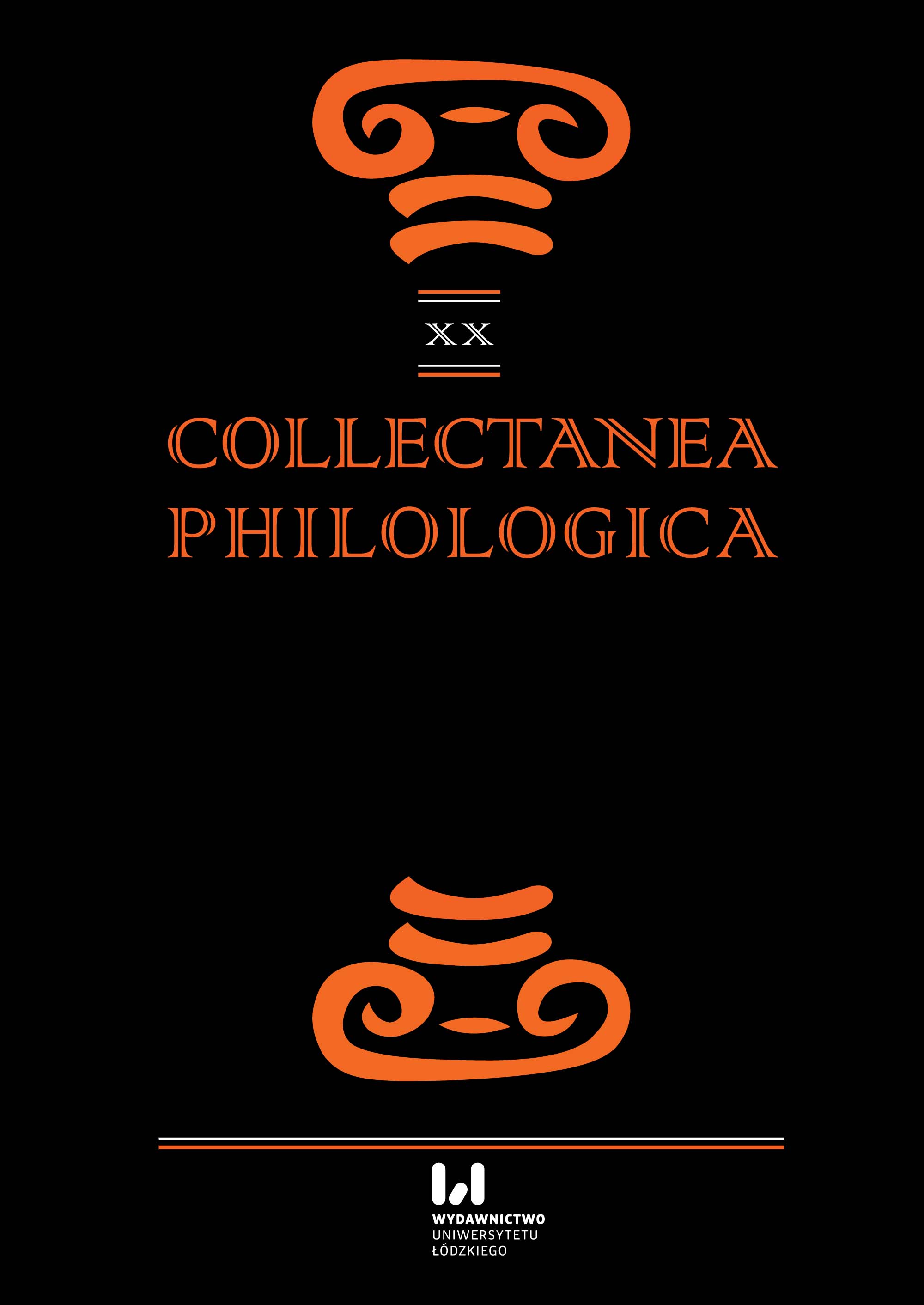Rozumne zachowania zwierząt w relacji Marka Tulliusza Cycerona
DOI:
https://doi.org/10.18778/1733-0319.20.04Słowa kluczowe:
Cicero, rationality, Stoics, animals, reasonablenessAbstrakt
-
Bibliografia
Andrews, K. (2015). The Animal Mind. An Introduction to the Philosophy of Animal Cognition. London–New York: Routledge.
Google Scholar
Argyle, M. (1991). Cooperation: The Basis of Sociability. London: Routledge.
Google Scholar
Cicero, M. T. (1915). Scripta quae manserunt omnia, fasc. 43. De finibus bonorum et malorum. Th. Schichte (ed.). Leipzig: Teubner.
Google Scholar
Cicero, M. T. (1918). De legibus libri tres. C. F. W. Müller (ed.). Leipzig: Teubner.
Google Scholar
Cicero, M. T. (1918). Tusculanae disputationes. M. Pohlenz (ed.), Leipzig: Teubner.
Google Scholar
Cicero, M. T. (1928). De officiis, with an English Translation. W. Miller (ed.). London: William Heinemann LTD.
Google Scholar
Cicero, M. T. (1980). De natura deorum. W. Ax (ed.). Stuttgart: Teubner.
Google Scholar
Cicero, M. T. (2004). Epistulae ad Quintum fratrem et M. Brutum. D. R. Shackleton Bailey (ed.). Cambridge–New York: Cambridge University Press.
Google Scholar
Cyceron, M. T. (1960). Pisma filozoficzne. T. 1. Przeł. W. Kornatowski. Warszawa: PWN.
Google Scholar
Lucretius, T. C. (1953). De rerum natura libri sex. J. Martin (ed.). Leipzig: Teubner.
Google Scholar
Newmyer, S. T. (2017). The Animal and the Human in Ancient and Modern Thought. The Man “Alone of Animals” Concept. London: Routledge.
Google Scholar
Philo Alex. (1822). De animalibus adversus Alexandrum. J. B. Aucher (ed.). Venetiis.
Google Scholar
Reinhardt, L. (1888). Die Quellen von Ciceros Schrift de deorum natura. Diss. Breslau.
Google Scholar
Rocca, S. (2003). Animali (e uomini) in Cicerone (De Nat. Deor. 2, 121–161). Genoa: Compagnia dei Librai.
Google Scholar
Sorabji, R. (1993). Animal Minds and Human Morals, Ithaca–New York: Cornell University Press.
Google Scholar
Tutrone, F. (2016). Vox naturae: The Myth of Animal Nature in the Late Roman Republic. W: P. Johnston et al. (eds.), Animals in Greek and Roman Religion and Myth. Cambridge Scholars Publishing. 51–84.
Google Scholar
Weil, K. (2012). Thinking Animals: Why Animal Studies Now? New York: Columbia University Press.
Google Scholar
Wright, M. R. (2002). Cicero on Self-Love and Love of Humanity in De Finibus 3. W: J. G. F. Powell (ed.), Cicero the Philosopher. Twelve Papers. Oxford: Clarendon Press. 171–197.
Google Scholar












